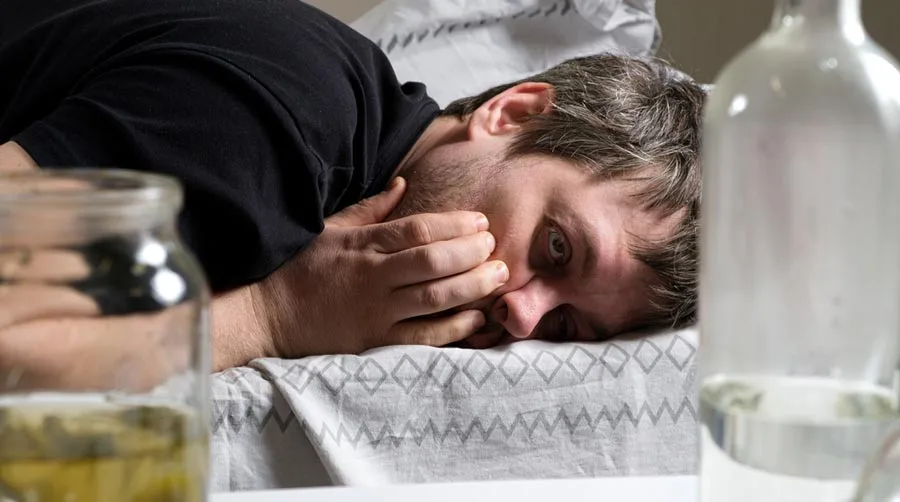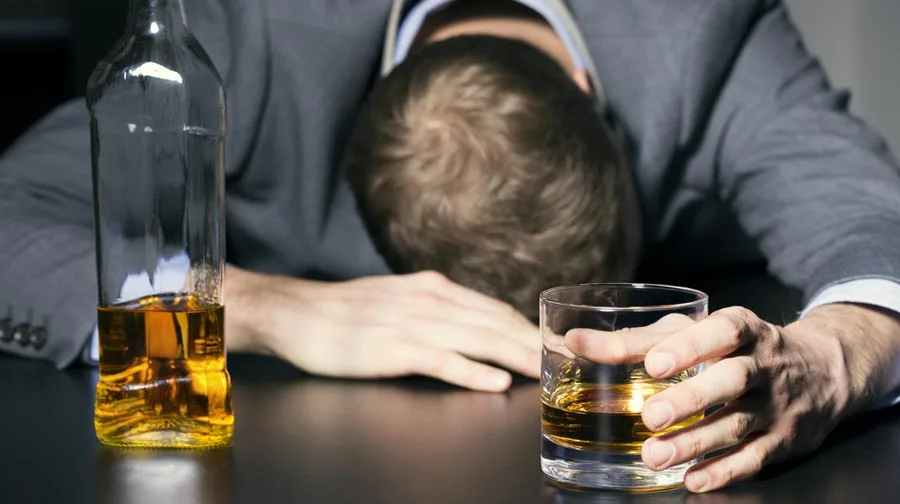Get Answers and Help for Problem Drinking and its Effects
Understanding the distinction between alcohol poisoning vs. hangover is essential for anyone who drinks too much or their loved ones. If you or someone you love abuses alcohol, knowing the differences between these two situations could someday save their life.
The symptoms of both alcohol poisoning and hangovers are the result of ingesting too much alcohol. Despite the same contributing factor, the perils are different between them.
A hangover happens after you drink too much liquor. The response is your body’s way of handling the toxins. However, alcohol poisoning is a serious, sometimes deadly, consequence of overconsuming alcohol. This medical emergency requires immediate attention. Knowing the difference between alcohol poisoning vs hangover is crucial, especially in this context.
At South Shores Recovery in Dana Point, CA, we offer alcohol rehab programs with professionalism. Our focus is on evidence-based dual diagnosis treatment. We address alcohol use disorder (AUD) and any underlying mental illnesses that make you turn to drinking.
Keep reading to learn more about how you can differentiate between a hangover and alcohol poisoning.
What Drinking Alcohol Does to Your Body
Alcohol travels relatively quickly and impacts nearly every system within your body. It first enters the bloodstream through the stomach and small intestine, reaching the brain shortly afterward. There, it slows down the chemicals your brain cells use to send messages. This altered brain function transforms your mood, reflexes, and behaviors.
The liver, which breaks down alcohol and eliminates it, can only process a certain amount of alcohol at once. Drinking more than your liver can handle can lead to intoxication and several related symptoms. You may get hungover or experience alcohol poisoning.
Excessive drinking can also overwhelm the liver, leading to long-term health complications. It can most famously cause liver disease or cirrhosis, along with often related symptoms such as a painful swelling of the abdomen called ascites.
Know the Key Differences: Alcohol Poisoning vs Hangover
Is it a hangover or alcohol poisoning?
Understanding how alcohol poisoning versus a hangover could be a literal lifesaver. A hangover occurs more frequently than alcohol poisoning, but the two are different.
Most describe a hangover as very uncomfortable but is not usually lethal. The symptoms of a hangover typically get better after time and rest.
Conversely, alcohol poisoning is a quickly accelerating, acute condition.
It can become deadly without receiving quick treatment. Knowing the symptoms of alcohol poisoning can help you seek the alcohol poisoning treatment necessary.
Discerning between the two can help you decide when to call 911 for medical attention.
Alcohol Poisoning Symptoms
Alcohol poisoning occurs after consuming too much alcohol consumption in a brief period. It can even be fatal. This medical emergency warrants an immediate call to 911.
The common symptoms of alcohol poisoning occur when there’s an overabundance of alcohol in the bloodstream. How much alcohol is too much alcohol? It varies from one person to the next. Some factors are the person’s size, metabolism, and how often they drink alcohol.
For instance, a tall and larger person drinks two beers with little impact. But a petite and very thin person may have consequences when drinking the same amount.
The unpleasant symptoms of alcohol poisoning can include these:
- Mental confusion and brain fog
- Vomiting
- Seizures
- Slurred speech
- Slow or irregular breathing
- Hypothermia as the body temperature plummet
- Fainting or unconsciousness
- Hypoglycemia due to a blood sugar crash
- Choking on their own vomit due to an impaired gag reflex
- Dehydration
A person with alcohol poisoning who is unconscious risks death. If you suspect someone has an alcohol poisoning emergency, don’t delay. Seek immediate medical attention. All the symptoms above needn’t be present for this alcohol poisoning to be a dire emergency.
At South Shores Recovery, we focus on the significance of understanding these symptoms. We don’t want to alarm you but to educate you. We strive to prepare our clients and their families. If you or someone you know tussles with alcohol use, we can provide you with recovery in a caring, skilled environment.
Our team capably handles alcohol poisoning emergencies with the utmost care and provides the medical help and psychological support needed for recovery.
Hangover Symptoms
A hangover is how your body reacts after drinking too much. According to the Poison Control Center, overindulging in a short period can cause you to feel sluggish or less productive, but you can recover after some rest.
The symptoms of a hangover are very different from one person to another. However, they will often include the following signs:
- Headaches and muscle aches as the blood vessels constrict
- Dehydration, causing a feeling of a “hangover fever”
- Nausea, vomiting, or a stomachache due to an irritated stomach lining
- Poor sleep
- Increased sensitivity to light and sound
- Dizziness or a spinning sensation
- Rapid heartbeat
- Mood disturbances
- Temporary cognitive decline
Hangovers can be pretty uncomfortable But, the physical symptoms typically heal on their own with time or with over-the-counter pain medication and drinking water to rehydrate. It’s also worth mentioning that the notion of taking a cold shower is a myth. Cold showers do not speed up your metabolism or help rehydrate your system.
Unlike alcohol poisoning, hangovers don’t usually require medical treatment. However, frequent hangovers can be a sign of excessive drinking. It may reveal that you or someone you love might need help.
How to Avoid Alcohol Poisoning or a Hangover
The only sure way of avoiding alcohol poisoning or a hangover is to swear off drinking altogether. But we also know that your peers may pressure you to join them in enjoying alcoholic drinks or a few beers.
While those who are in recovery should not drink at all, others may have found this page seeking tips for avoiding alcohol intoxication.
Here are some strategies to help you stay safe if you feel you will not be able to avoid peer pressure:
- Moderate your alcohol intake by sipping just one or two drinks.
- Eat a light meal, as food can help your body absorb the alcohol and lower your blood alcohol level. Don’t eat greasy food; instead, enjoy lean protein or crunchy vegetables.
- Don’t play drinking games, which can cause you to binge drink while caught up in the moment.
- Drink plenty of water between drinks.to prevent dehydration.
- Know your limits and order a club soda and lime for the next round.
- Don’t drive to the event and have a ride home lined up in advance.
- We strongly advise you to avoid underage drinking
There is no “safe consumption” of alcohol for someone with AUD.
Why Drinking Alcohol Is So Addictive
The addictive nature of alcohol comes from its complex effects on the brain. It creates a cycle that often seems impossible without professional help. AUD is a medical condition. Those who struggle with a drinking problem often struggle with the inability to stop or control alcohol use, even when facing adversity.
Here are six main reasons why alcohol can be so addictive:
- Pleasure Reinforcement: Alcohol releases dopamine into the brain’s reward center. That’s why it creates feelings of pleasure and reinforces the behavior of drinking.
- Tolerance Development: Drinking too often leads to tolerance. Therefore, you need to drink even to achieve the same effect.
- Physical Dependence: With continued use, the body can become reliant on alcohol. These symptoms can be pretty uncomfortable and can drive the cycle of addiction, as individuals may drink to avoid withdrawal.
- Psychological Dependence: Drinking too much alcohol can become an unhealthful way to contend with stress, anxiety, or other mental health issues.
- Social and Cultural Factors: Social events often mean binge drinking and cultural norms usually reinforce alcohol consumption. The pressure to conform makes abstaining more challenging.
- Genetic Predisposition: Genetics may increase your likelihood of addiction, making some individuals more susceptible to alcohol dependence.
The entire South Shores Recovery team understands the debilitating nature of alcohol addiction. Alcohol use disorder is not a moral failure. Instead, it’s a chronic disease. Our evidence-based dual-diagnosis treatment programs address the physical addiction to alcohol and the psychological factors that cause it. From your initial medically supervised medical alcohol withdrawal to your post-rehab aftercare, we’re here to assist you.
We offer a supportive and non-judgmental space where our clients safely explore the root causes of their addiction.
Alcohol Detox Requires Medical Attention
Similarly to a hangover, detox is the process of the body eliminating all forms of ethanol from its system, which can lead to dangerous alcohol withdrawal symptoms. While they share a few of the same symptoms, the intensity and risk factors significantly differ.
When you read these symptoms one might experience during alcohol detox, you’ll understand why calling a rehab center for help is necessary. It’s extremely dangerous to try this at home.
- Tremors or shakes from alcohol withdrawal are common
- Anxiety
- Nausea and vomiting
- Dry heaves, if an empty stomach
- Headaches
- Insomnia
- Increased heart rate
- Sweating
- Changes in blood pressure
- Increased heart rate
- Sweating
- Hallucinations
- Seizures
- Delerium Tremens (sudden changes to the nervous system; this is an incredibly dangerous scenario)
You can rely on the professionals at South Shores Recovery for medical detox. The professionals can prescribe medications to alleviate and manage the worst symptoms. Alcohol withdrawal can be dangerous and potentially life-threatening and should not be attempted alone.
Our Treatment Center Is Here to Help: Reach Out Now
The whole South Shores Recovery team knows the challenges that come from hangovers and alcohol poisoning or abuse. We want you to know that you’re not alone if you are addicted to excessive drinking.
Our alcohol rehab and treatment center in Dana Point, CA, is a sanctuary for healing and recovery. Our evidence-based approach to alcohol rehab combines medical and psychological care.
Do you or someone you love struggle every day to overcome alcohol abuse? We can help, but we need you to reach out for help. Our team is here, ready to provide immediate assistance and answer your lingering questions.
Are you ready to change and become your personal best? You can do it. Don’t let another day go by. It’s time today to get the help you deserve.
Contact South Shores Recovery today to connect with a caring specialist. We can help you take the first step towards a healthy, new, alcohol-free lifestyle. Your path to recovery and wellness starts right now.





